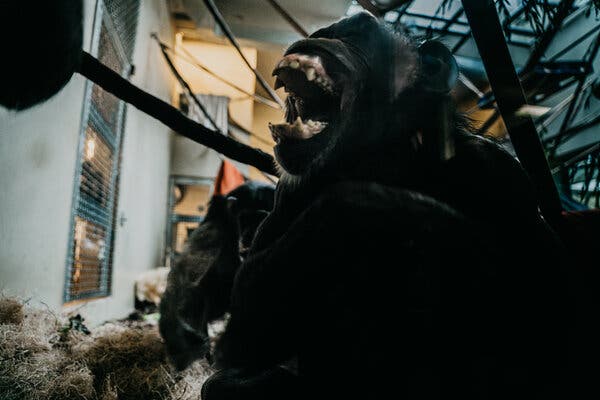It was a rainy morning at the Lincoln Park Zoo, and at the chimpanzee exhibit, it was the children who were hooting and hollering. The apes themselves were placid, ignoring their rowdy audience as they foraged for leaves and swayed in small hammocks.
But hidden behind the scenes, out of public view, lived another group of chimps who were far less sanguine about strangers. And when they spotted two unfamiliar visitors, they rushed over to the edge of their enclosure. Eli, a gentle young adult, approached with his hair standing on end. Then Susie, a small but strong-willed female, spotted a photographer and began to shriek.
“She might be upset at the cameras,” said Jill Moyse, the curator of primates.
Eli and Susie had spent much of their young lives in front of cameras. Before arriving at the Lincoln Park Zoo in 2020, the pair had worked in Hollywood, racking up a long list of credits, including TV shows, music videos and commercials.
Captive chimpanzees were not protected by the Endangered Species Act until 2015, and even now, there is no blanket federal prohibition on private citizens owning chimps or raising them as pets and performers. The practice can end in tragedy, as the recent HBO docuseries “Chimp Crazy” makes clear: The series depicts full-grown chimpanzees, which are highly intelligent and social creatures, living in small basement cages and acting like the wild animals they are, sometimes gravely injuring people.
“‘Chimp Crazy’ exposed exactly how dangerous and cruel this pet primate trade is in a very visceral way,” said Kate Dylewsky, the assistant director of government affairs at the Animal Welfare Institute, a nonprofit that is lobbying for a national ban on keeping nonhuman primates as pets.
